Funso OLOJO
As part of efforts to enhance the safety of waterways across the nation, the federal government has donated 3500 life-jackets to Ogun State Government for waterways operators in the state.
The Minister of Marine and Blue Economy, Adegboyega Oyetola, who handed over the life-jackets on Tuesday, assured Nigerian inland waterways users that the ministry will stop at nothing to curb the needless loss of lives on waterways.
Represented by Director of Maritime Services in the Ministry of Marine and Blue Economy, Dr. Mercy Ilori, the Minister said the campaign is part of a deliberate national strategy to embed a culture of safety on our inland waterways.
“This is one of the most comprehensive Federal government responses in recent times to the persistent loss of lives on Nigeria’s waterways.
“Consequently, there have been successful handovers of Safety life jackets at Niger, Bayelsa, Anambra, Akwa Ibom, Delta, Taraba, and Lagos States.
” We are now in Ogun State to sustain the momentum and reveal the government’s unwavering commitment to protecting the lives and livelihoods of the people of Ogun.
“You will all agree with me that the frequency and tragic consequences of boat mishaps across the country are deeply concerning.
“It is in recognition of this menace that the Federal Ministry of Marine and Blue Economy aligned with the Renewed Hope Agenda of President Bola Ahmed Tinubu, to prioritize life-saving interventions to bring about tangible change.”
He stressed that the government’s commitment to end the needless loss of lives on waterways is anchored on three pillars: Strict enforcement of the Inland Waterways Transportation Regulations 2023; Continuous public education and sensitization campaigns; and Provision of critical safety equipment, notably life jackets, to waterway users.
“It is worthy to note that the National Inland Waterways Authority (NIWA), a key agency under the Ministry, plays a pivotal role in ensuring the success of this strategy.
“NIWA continues to lead in regulation, monitoring compliance, and supporting education and enforcement efforts on our inland waters,” he remarked.
Meanwhile, the Governor of Ogun State, Dapo Abiodun, assured the Minister that the life jackets will be distributed equitably to registered operators across the state.
The Governor, who was represented by the State Commissioner for Transportation, Engr. Gbenga Dairo, stated that safety on the nation’s waterways wasn’t a privilege but a right of everyone in Ogun State.
He also assured that the State is ready and willing to provide all the necessary support to sustain the momentum but to enhance inland waterways as viable and secured alternative to road infrastructure.
“Safety on the waterways is not a privilege, it is a right.
” Every life jacket handed over today represents a life potentially saved, a family preserved, and a future secured.
” This initiative aligns with the human capital development pillar of our administration’s ISEYA agenda ensuring that people remain at the heart of our progress
“Ogun State values the synergy we have fostered with the Ministry of Marine and Blue Economy and applauds their dedication to the development of marine infrastrucnare, safety standards, and the blue economy as a whole.
” Ogun State stands ready and willing to provide all the necessary support to sustain this momentum, not only in marine safety but also in enhancing inland waterways as viable and secure alternatives to road transport.”
“To our waterway users, boat operators, fishermen, and residents of our riverine communities: these life jackets are for you.
” But more importantly, the knowledge and awareness you will gain from this sensitization effort will serve as your daily companion, protecting you and helping you protect others.
“Ogun State hereby assures the Federal Ministry of Marine & Blue Economy and NIWA that these life jackets will be equitably distributed to verified and recognised operators across the state’s waterways, from Iwopin to Ebute-Ero, from Agbara to Tongeji, Imakun Omi to Ode-Omi, and other active riverine corridors.
” A strict monitoring and maintenance protocol will be enforced to ensure sustainability and accountability.”
The State Governor, however, warned that State actors would not allow preventable tragedies define the nation’s waterways
“As we continue to embrace innovation and development in transportation, we must also embrace accountability and responsibility.
“Let us not allow preventable tragedies to define way of life, let us instead champion the principles of safety, respect for life, and collective vigilance.”
However, the Managing Director of NIWA, Mr. Bola Oyebamiji, warned that the issue of safety on the inland waterways cannot be over emphasized as he recounted several tragic incidents that claimed lives in hundreds.
“The issue of safety can never be over-emphasized. In June 12, 2023, a wooden boat carrying wedding guests returning from a marriage ceremony from Niger State capsized in Jeva Channel Lake, in River Niger in Kwara State, owing to overloading and a submerged tree.
“The boat was reported to be carrying over 200 guests despite having the capacity of carrying just less than 100 passengers.
“More than 200 lives were lost, among which a father and four of his children were involved. So you can imagine the kind of tragedy that befell the family.
“Again, in October 1, 2024, a wooden boat carrying mostly women and children traveling for religious festive occasions capsized in Niger State.
“The boat was reported to be carrying over 300 passengers even though it has the capacity of carrying less than 100 passengers. More than 100 lives were lost.”
NIWA Managing Director, who was represented by Engr. Elsie Egwuatu, observed that in the respective cases the boats were heavily overloaded, sailed at night without the proper navigational aids and conveyed passengers without life-jackets.
“So if you think safety is expensive, try disaster. Over 90 percent of accidents that happen on our waterways are caused by human error.
“In most cases, it is caused by captain’s negligence. The newly gazetted Marine and Transport Regulations Codes, which spells out offences and punishments, ranging from fine to imprisonment, mandates the compulsory use of life jackets for all waterways users sailing on our waterways,” she added.
Also speaking, the National President of the Association of Tourist Boat Operators and Water Transporters of Nigeria (ATBOWATON), Alhaji Tarzan Balogun called for intensified regulatory efforts to prioritize safety and infrastructural development on Nigerian waterways.
Alhaji Balogun commended the government for its efforts in promoting safety across the country’s inland waterways, even as he assured that the life jackets would be used judiciously.
“There must be a firm policy — no life jacket, no entry. I’ve witnessed several cases where passengers refuse to wear them. That should not be allowed. Safety must come first,” he said.
Balogun also praised the federal government, particularly President Tinubu and the Minister of Marine and Blue Economy, for their commitment to maritime safety and for recognizing the importance of life-saving gear in water transport.
“If you’re drunk or perceived to be a threat to others onboard, operators must have the authority to refuse you entry.
” There is also the problem of bringing animals onboard, especially dogs who can scare passengers onboard and make boats capsize,” he stated.
Balogun also called on the Ogun State Government to emulate Lagos by setting up a dedicated waterways authority and constructing jetties in collaboration with local boat operators.

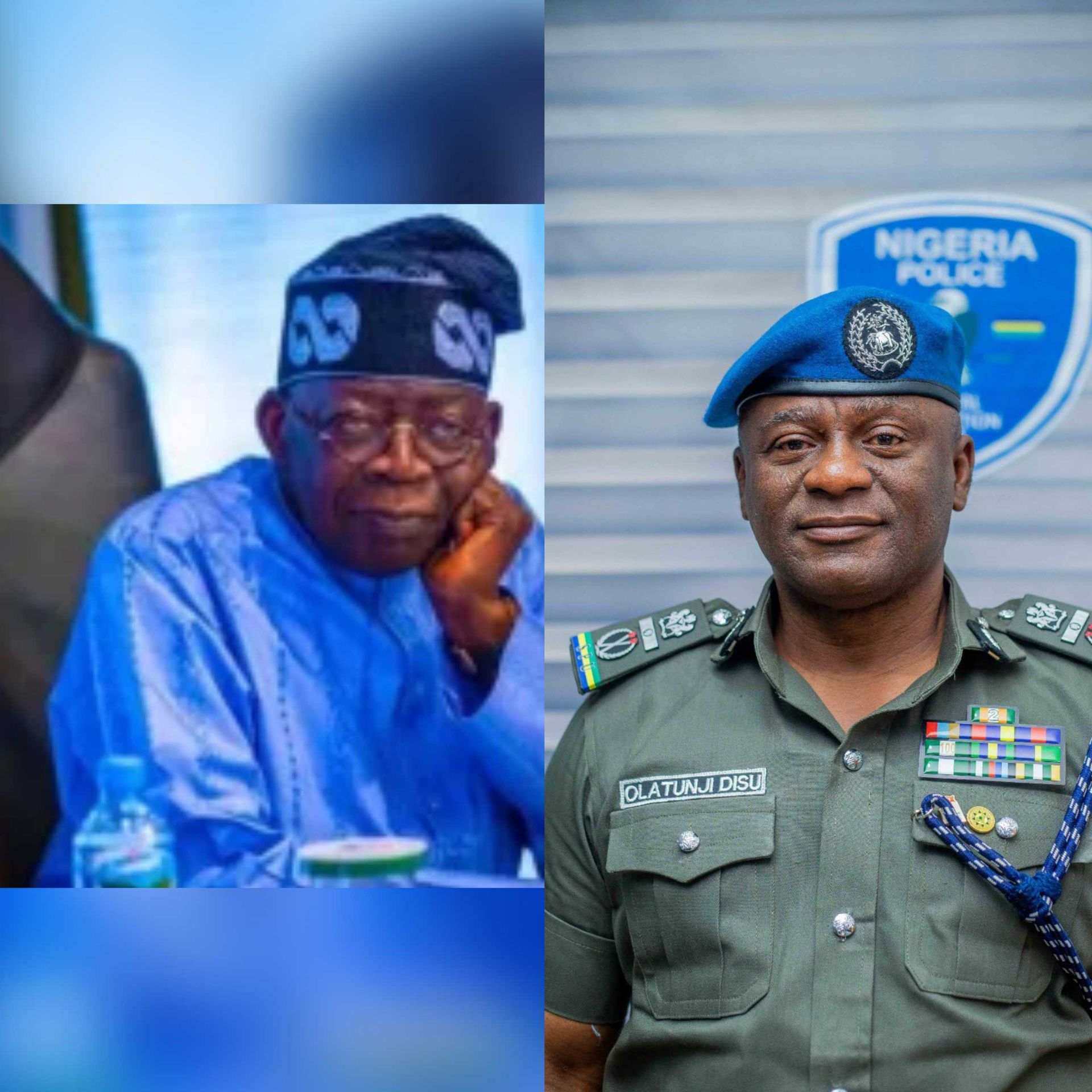

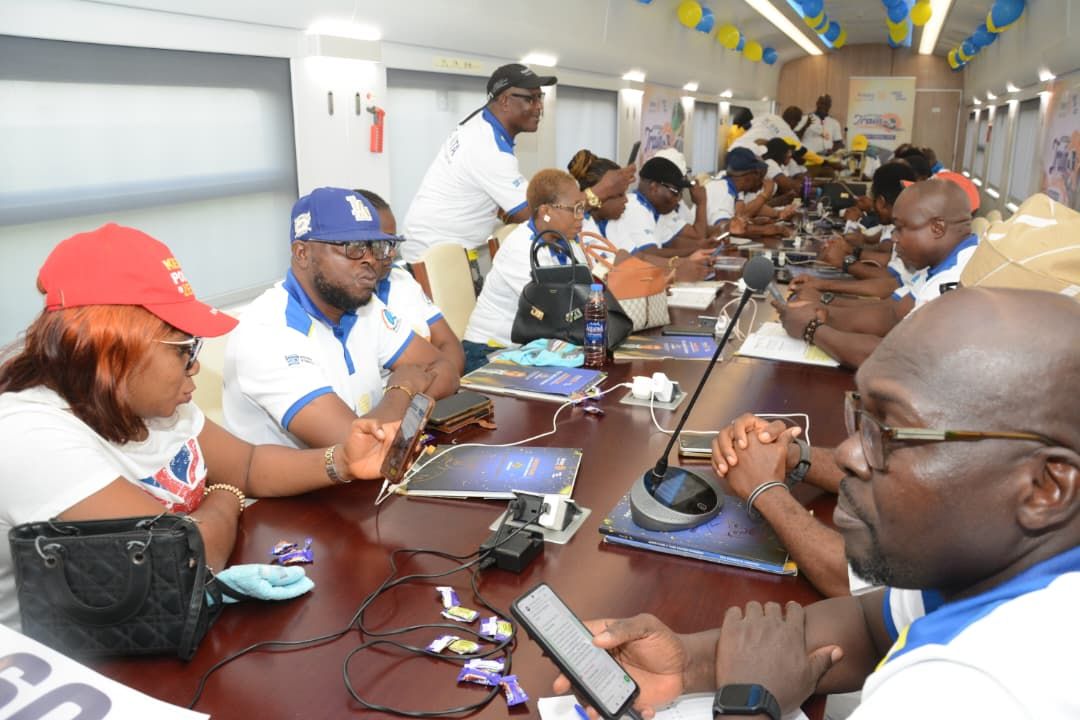

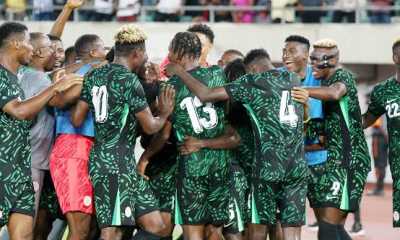
 Headlines2 weeks ago
Headlines2 weeks ago
 Headlines3 months ago
Headlines3 months ago
 Headlines1 month ago
Headlines1 month ago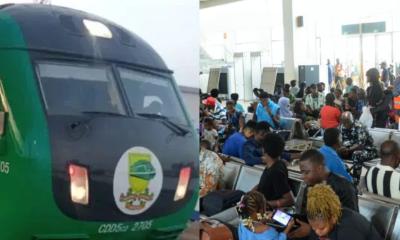
 Headlines2 months ago
Headlines2 months ago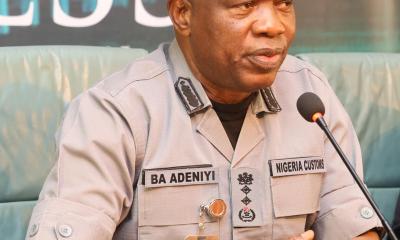
 Customs3 months ago
Customs3 months ago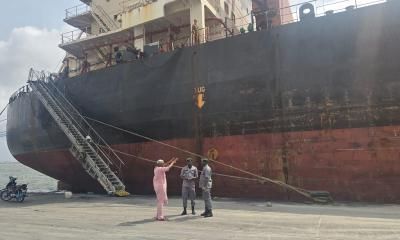
 Customs2 months ago
Customs2 months ago
